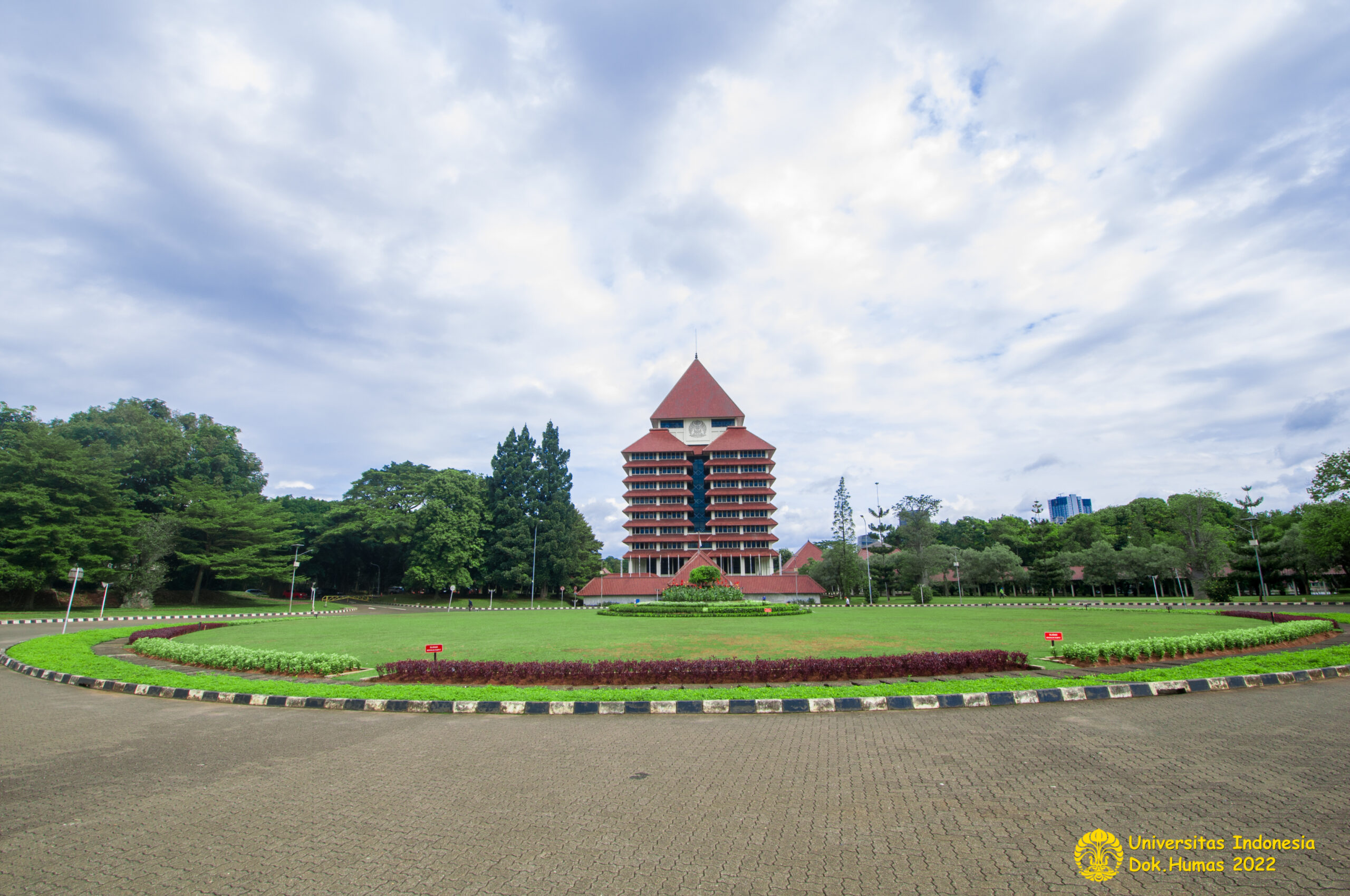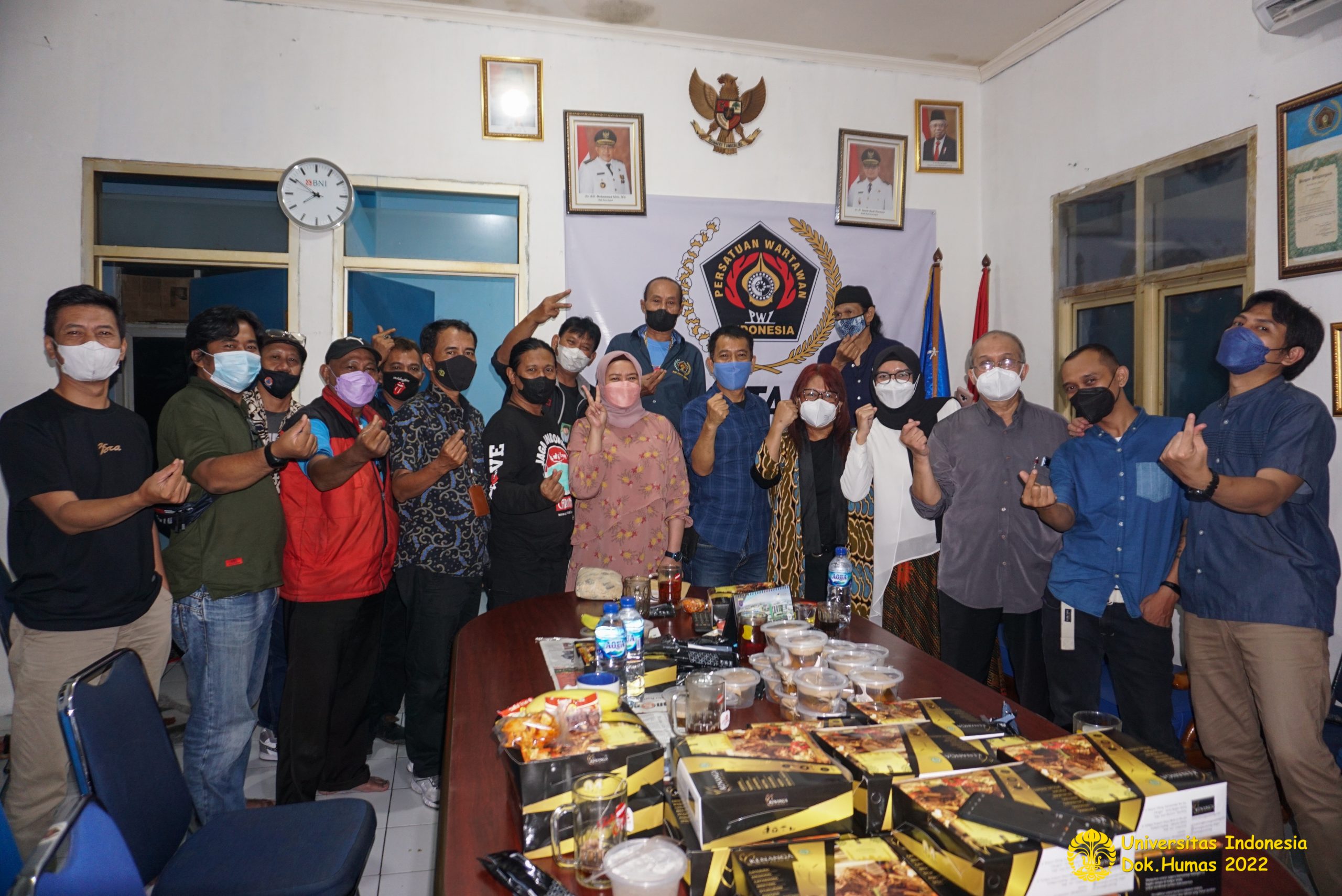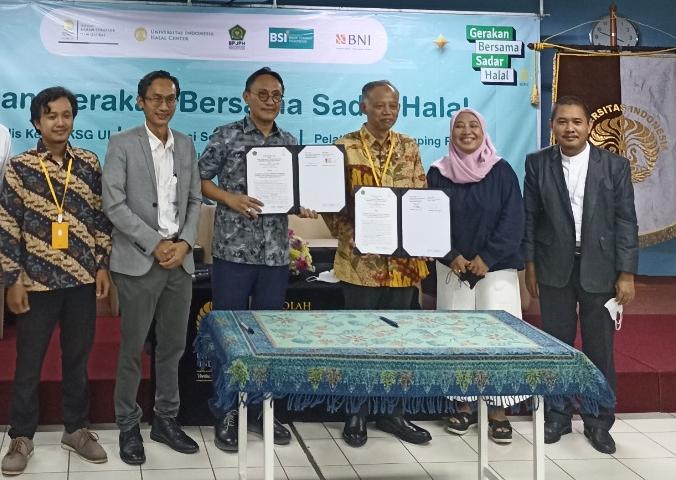
Responding to the dynamics of international change, Indonesia is deemed necessary to map out its potential non-traditional partners, including in the African and Latin American regions. In today’s era of globalization, geographical distance is no longer the main aspect to overview the economic relations between countries. “Strengthening interdependence between countries and the rapid and rapid development of information and communication technology (ICT) should be able to encourage the improvement of economic relations between countries. Realizing this, solid economic diplomacy is a tool that needs to be optimized in expanding economic cooperation,” said Prof. Dr. Drs. Fredy Buhama Lumban Tobing, M.Sc., in his Professor inauguration ceremony which was held online and offline on Saturday (06/08).
In a speech entitled “Indonesian Economic Diplomacy and Foreign Policy: Multilevel Optimization and Multi Track Diplomacy”, Fredy added, Indonesia is deemed necessary to formulate an integrated strategy in carrying out diplomacy considering that the aim of diplomacy must be a national agenda. “In this case, it is recommended that Indonesia be more active in taking advantage of various international cooperation fora. So actually there has been awareness about the importance of changing our perspective, both in terms of the essence of diplomacy itself and related to the regional focus, namely by implementing integrated multilevel diplomacy,” said the Professor in International Relations.
Theoretically, economic diplomacy concerns activities that include voluntary negotiation and cooperation through non-binding regulations (soft type regulations) to the creation and enforcement of rules (enforcement binding rules) with the aim of increasing economic prosperity and using economic means to increase political stability. Fredy explained that there are five types of forms/tools of economic diplomacy offered by Okano-Heijmans, namely commercial diplomacy (commercial diplomacy), trade diplomacy (trade diplomacy), financial diplomacy (financial diplomacy), inducements and sanctions. produce a variety of activities/media used.
“Reflecting on efforts to strengthen and expand Indonesia’s new partners in the Latin America region, building a narrative as the first step in establishing a grand strategy for Indonesia’s future trade is a necessity. By using an economic diplomacy strategy within the framework of a multilevel and multitrack concept, trade optimization can be carried out in a multilevel framework not only by government actors, but also by business groups, but still under the control of the government as has been the culture of Indonesian political economy so far. This of course aims to maintain national interests and the welfare of local communities in the midst of global competitiveness,” said Fredy.
According to him, through multi track diplomacy, various actors are involved in the international trade process. “Therefore, the Indonesian government needs to involve and facilitate Indonesian companies to open their relationships with various companies in the region with potential new partners. The established Business to Business will optimize achievements in Indonesia’s economic diplomacy. In addition, it is also necessary to diversify Indonesia’s superior commodity actors who have occupied a strategic position in world export commodities, namely by encouraging MSME activists as a manifestation of Indonesia’s economic diplomacy. Thus, not only making agreements among elites in bilateral and multilateral meetings, economic diplomacy should also be driven by connectivity between individuals. With the harmonization of these various actors, it is hoped that the expansion and market penetration efforts for Indonesian products will be more massive, intensive, and inclusive,” he said, providing input for the government in carrying out Indonesia’s economic diplomacy with its potential partners.
At the end of his speech, Fredy said that the grand strategy of Indonesia’s economic diplomacy, especially in the trade sector, must be able to adapt to the global dynamics that occur today and in the future. In the inauguration of his professors, the general chairman of Punguan Ompu Raja Jaejae Lumban Tobing Jabodetabek was also present offline, Inspector General of Police (Ret.) Drs. Erwin T P Lumban Tobing; and the Chancellor/Professor of the University Prof. Dr. Moestopo (Religious), Prof. Dr. Paiman Raharjo, M.M., M.Sc.; and attended online the Chair of the University’s Academic Senate, Prof. Nachrowi Djalal Nachrowi, M.Sc., M.Phil., Ph.D., and other UI professors.
During his career as an academic, Fredy served as the Dean of FISIP UPN “Veteran” Jakarta for the period 2009 – 2013. In 2019, he was elected as a Member of the Board of Trustees of the University of Indonesia (Vice Lecturer) for a term of 2019 – 2024. Fredy completed his Bachelor of Science education. Politics/International Relations at the Faculty of Social and Political Sciences, University of Indonesia (FISIP UI) in 1987. Then, at the same campus, in 1998 Fredy completed his Masters in Political Science program. He won a Doctorate in Political Science at FISIP UI in 2012.
In the 2017-2021 period, there are 10 of Fredy’s latest scientific works, including the title “Turkish Islam-Nationalism Under AKP: A New Model For The Muslim World?” Global: Journal of International Politics (2021); “Will ‘Sustainable Development’ Live up to its Promises?: The Paradox of Human-centred Development Strategies.” IR-UI Commentaries (2020); “Globalization and Development of Indonesian Maritime Infrastructure in the Field of Connectivity and Logistics Systems (2014-2019)” Journal of International Studies (2020); “Functional Multi-track and Multilevel Economic Diplomacy to Strengthen Trade Relations Between Indonesia, Chile, and Peru: Conditions for Success.” A reputable international journal indexed by Scopus, Regions and Cohesion (2020), and “The Internationalization of Renminbi.” INTERMESTIC, Journal of International Studies (2019).



